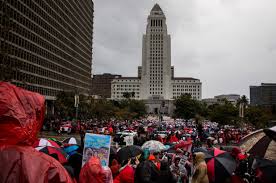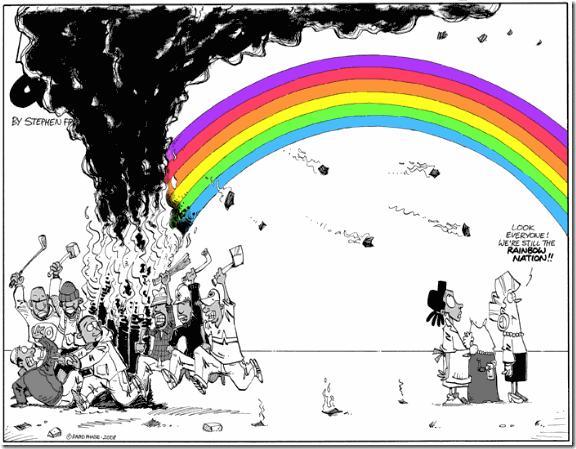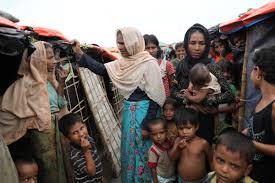
Recently I came across the book from Michael Ignatieff ‘Ordinary Virtues’. It was written in connection with the Carnegie Centennial Project that commemorated a $ 2 million gift in 1914 by the American steel magnate Andrew Carnegie to Church Peace Union, a group of global religions, with the purpose of advocating jointly international peace. Carnegie was very active in the area of world peace; he financed, among others, the construction of the peace palaces in The Hague and in Geneva.
I was interested in this book for two reasons, firstly because it dealt with virtues, and comes therefore in the orbit of this website. The second reason is that it talks about moral globalization and world ethics. It describes the virtues that people in dire circumstances successfully employ to face their challenging situations. As we maintain a Twitter account on world ethics, we felt it would be useful to refer Twitter followers to this blog. The blog itself is mainly a summary/anthology from Ignatieff’s book. The opinions expressed are there fore his.
Church Peace Union, to which Carnegie bequeathed the gift in 1914, metamorphosed over one hundred years into the Carnegie Council for Ethics in International Affairs. The Carnegie Centennial Project was to commemorate the illusions about moral progress that gave rise to Carnegie’s bequest, as well as to investigate what moral globalization looks like in this century.
A team was set up to visit four continents over three years (focus of visit between parentheses) which covered two places in the United States, Jackson Heights, New York (diversity ) and Los Angeles (the moral operating systems of global cities) as well as Rio de Janeiro (order, corruption and public trust ), South Africa (after the rainbow), Myanmar (politics of moral narrative), Bosnia (war and reconciliation) and Fukushima (resilience and the unimaginable).
---------------It had been Carnegie’s hope that economic progress would bring about moral convergence among the world’s religions and value systems. While not insignificant, and there are currently several global organizations in this domain, the role of religion in peacemaking has been less significant than was originally anticipated. This project found that religion still matters, as consolation, inspiration and guide, but new secular patterns of belief have been developing. Human rights figures as a possible candidate for a new global ethic. One of the objectives of the study was to see how far this human rights ethics had spread and how the battle between the local and the universal, the contextual and the global did play out in the moral lives of ordinary people.
The book states that our new moral problem is how people from hundreds of different origins, histories, faiths and religions can create shared moral operating systems.
The first of the new entrepreneurs of moral globalization are the executives of the multinational corporations. The second group of entrepreneurs are the advocates, activists and NGO’s seeking to moralize the ‘cash nexus’, of which the UN Global Compact is an example.
The language that since 1945 has come to frame these global debates, e.g. refugees and development aid, is human rights. For the first time, the rights of individuals have been recognized by the international state system. No other language of the human good has proved so influential, in large part because the language addresses every single human being alive as a sovereign individual.
Since 1945, the human rights consciousness, once confined to religious egalitarians, revolutionaries and anti-slavery campaigners, has come to shape the moral thinking of billions of people around the world. Moral globalization, when considered as a long struggle for equality, has resulted everywhere where the team went, in a new norm of equal voice.
So equality of voice and moral choice as an individual responsibility were the two new expectations the team observed everywhere. Equality in law and ethics may be the norm in constitutions and moral discourse alike. This is the great achievement of Mrs. Roosevelt’s revolution, but it left most of the interlocutors restless, uncertain and unsatisfied with the result. For there is a dialectic of insatiability at work here. The moral equality already achieved shows up the inequalities of privilege, power, income and fate that remain.

In addition to vernacularization of human rights and international humanitarian law, a third language, environmentalism, has been put into play to rally local struggles around the common battle to save the planet. To these secular languages – human rights, humanitarian law, and environmentalism – should be added a fourth: the religious languages of global solidarity. These then are the agents, old and new, – secular, religious, academic, and activist – who are fighting it out to define which language of moral globalization will shape the characteristic virtues of our age.
As a politics, the one-world moral perspective of human rights has been making limited headway among populations. Research has confirmed that human rights remains an ‘elite discourse’, the lingua franca of an influential, but thinly spread stratum of educated, middle and upper class intellectuals, university teachers, etc.
Global ethicists attribute the limited success of a global ethic to selfish national interests. Yet the problem runs deeper, says Ordinary Virtues. Globalization has sharpened, not weakened, the conflict between universal principles and democratic self-rule. Citizens in most democracies believe that their own interests, democratically chosen, ought to prevail over the interests of peoples in other countries.
How do these momentous clashes, between religious and secular principles, environment and profit, local tradition and universal rights, play out in the day-to-day lives of ordinary people?
The book refers here to the ‘ordinary virtues’ because these virtues – trust, honesty, politeness, tolerance, respect, forgiveness, reconciliation, and resilience – emerged as the common thread through all the dialogues and the operating system of every community visited. By ordinary virtues Ignatieff means commonplace and everyday as opposed to heroic and exceptional. By ordinary he also means non-reflexive and unthinking as opposed to purposive and rationally justified. Virtue is for him a life skill, a practice acquired through experience rather than an exercise of moral judgment or an act of deliberative thought.
What is common to human beings, the team found, is virtue, defined as acquired practical skills in moral conduct and discernment, not shared values as such. Instead of using available universals, people encountered simply thought to practice the ordinary virtues, as best they could in daily life. These exercises in moral justification were not abstract and theoretical, but intensely practical, contextual and local. Ordinary virtue – local, contextual, nonideological, antitheoretical – turned out to be the moral operating system of hyper-diverse cities as well as smaller communities. The term ‘moral operating system’ is used in a metaphorical sense to capture the tacit, implicit character of the ordinary virtues, plus the sense that the moral order they create becomes a shared public good, like open source code, used by all but neither authored nor possessed by a single person.
Among the very poor, human rights and global ethics were terms most had never heard of. Abstractions of any sort – and human rights is one- were of little use to these people
Ordinary virtue does not generalize. It does not forget or ignore difference; does not pay much attention to the human beneath all our diversity; is not much interested in ethical consistency; works to live and let live as an organizing assumption in dealings with others, but retreats to loyalty toward one’s own when threatened; is anti-ideological and antipolitical; favors family and friends over strangers and other citizens; is hopeful about life without much of a metaphysics about the future and is often surprised by its own resilience in the face of adversity; believes, finally, that ethics is not an abstraction but just what you do and how you live, and that displaying the virtues, as best you can, is the point and purpose of a human life.
Ordinary virtue is a struggle with the ordinary vices: greed, lust, envy and hatred. Ordinary virtue can prove helpless in the face of extraordinary vice like terrorism. But when the crisis of violence and brutality passes, it is the ordinary virtues that do the rebuilding, that reform the networks of trust and resilience, without which ordinary life cannot continue.
Good institutions can give courage to virtue and inspire an upward spiral toward repair and renewal. There is a dynamic relationship between institutions and the ordinary virtues, like interethnic trust, tolerance and accommodation. On their journey the team witnessed downward spirals in the relation between virtue and institutions, evidence that good institutions cannot save a republic when its elites turn vicious and predatory and if the broad mass of an electorate colludes in their rapacity. They also found that the converse is true: good institutions, when supported by citizens of virtue, can stop the elites’ downward spiral into predatory self-dealing. The test of public institutions is whether they make it possible for us to behave decently toward each other. Ordinary virtue in private life is dependent on trustworthy public institutions. It is easier for the ordinary virtues to flourish in conditions of liberal freedom: where there is consent of the governed, rule of law, an independent judiciary, freedom of assembly and expression, majority rule and minority rights and competitive markets. Just as ordinary virtue is in constant struggle with the ordinary vices, so liberal institutions are constantly at risk from corruption, predation, and abuse.

Ethics can be modelled as an operating system because, like software, it guarantees the predictability necessary for stable human interactions. The most important condition for predictability is security: interactions that are free from violence. Without security, trust between strangers is impossible. In an age of fear, the ordinary virtues can’t function without security, and it is doubtful that human rights can turn back this tide; the sovereign returns and the universal loses its grip, not just on rulers, but also on those they rule.
A moral operating system is a collective social invention made possible by the reinforcing interaction between public institutions and the moral expectations of ordinary citizens. The operating system we take for granted allows our moral behavior to feel reflexive, unconscious and, as long as things go well, unproblematic. The default settings of an operating system are not propositional, general or theoretical; human rights doesn’t come into it.
Some thin moral consensus mandating limited trust, nonviolence and a default setting in favor of cooperation, appears necessary to keep a multicultural city functioning. The consensus has to be thin because it has to be pluralist; that is it has to accommodate the fact that inhabitants live in many moral universes at once – ethnic, religious, etc.
From an ordinary virtue perspective there is no contradiction between believing that races and religions should ‘live together’ in a global city, while simultaneously choosing to live apart, but side by side, in residential communities self-segregated by race or religion. The paradox may be that living apart is what makes living together possible and it is choice in the matter that renders the arrangement legitimate and possible.
In a diverse city everyone balances primary and secondary affiliations as a matter of course. The operating system is an open system, constantly adjusting to people’s lived experience of daily life. For most people the larger questions posed by globalization, together with the larger threats and opportunities, are simply beyond their reach or grasp. Ordinary virtue is thus a strategy for making do, for getting on with life, for bracketing larger questions that do not admit of answers. This is not the politics of resignation but of resilience. It focuses on what can actually be achieved.
In a city with a healthy moral economy, moral risks are rewarded, trust is returned and basic reciprocity is strengthened. What draws immigrants to the city in the first place is the dream of equality and opportunity. In a city like Los Angeles, ordinary human beings, in billions of interactions, struggle to turn what might have degenerated into a moral jungle, into a community that everyday delivers meaning, security and prosperity to millions.

Global norms, and all their international advocates in the NGO community, don’t stand a chance of changing the political culture of a country, unless the global goes local, unless these norms find a fierce domestic constituency. Ordinary people do not generalize or systematize their thinking. A global ethic, applicable to all mankind, is essentially unimaginable and irrelevant. It is because the validity of a moral proposition for the poor does not turn, as it does for philosophers in the Kantian tradition, on whether it can be universalized or generalized. Its validity turns instead on whether it is true for them and their immediate community, whether it makes sense, even provisionally, of their specific context and situation. Keeping confrontation manageable means turning the global back into the local. Ordinary virtue means fighting the global clichés of civilizational and religious clash by creating the space to do real politics together.

The ultimate question in the Centennial journey, according to the author, slowly became: of the three moral systems examined: human rights, global ethics and ordinary virtues – whose authority prevails in each situation?
The team was struck, everywhere it went, by the primacy of the local. Even in a globalized world, local sources of moral life – parents and siblings, home, place of worship, the local school, if there is one, are bound to be the primary shaping force of ordinary virtues.
In turn the states that protect the people will always exert a stronger moral influence than any external source, UN, NGO or international media.
Local and global moral discourses argued from diametrically opposed ideas about the ultimate object of moral concern. For the human rights activist, for the global ethicist, the object of ultimate concern is the frail, vulnerable, universal human being. Human differences – of race, class, or situation – are secondary. The very nature of moral duty is to be impartial, to regard the distinction for example, between a citizen and a stranger as morally irrelevant. In the moral universe of the ordinary virtues, on the other hand, the citizen-stranger, the us-versus-them distinction, was the first consideration, the starting point for moral decision making. The universal human being was rarely if ever the object of ultimate concern. Human rights and the ordinary virtues are thus in tension, just as law is in tension with moral feeling. While moral globalization and ethical convergence are occurring among cosmopolitan elites, human rights as law or ethics figures little in ordinary people’s reckoning with the moral quandaries they face in everyday life. They have more immediate things to worry about than the universal.

Mrs. Roosevelt assumed, as most human rights activists have always done, that human rights universalism and the ordinary virtues are complementary and mutually reinforcing. In human rights, it is assumed, that human beings recognize the universal human subject in every encounter we have with distinct human beings. This is the primary recognition that matters, there is no ‘other’; there is only us. Human rights enjoins us to be tolerant, to recognize the universal equality in all human beings. Ordinary virtue accepts no general obligation to tolerate anyone. Its motto is: ”take people one at a time’.
In the ordinary-virtue perspective, ‘otherness’ is primary. Common humanity, in this perspective, is not what we see, only difference and otherness. From the ordinary virtue perspective, the first question we ask of another human being: Is he/she one of us?
It is no surprise therefore, that what claims citizens must accord to strangers has become the most contentious issue in a globalizing world. Human rights enjoins citizens to be morally consistent and universalistic in their perspective towards strangers in danger, but ordinary virtue will always pull them towards favoring citizens close to home. The meeting point between the language of rights and the ordinary virtues is actually the language of compassion, pity and generosity, the language of gift rather than the language of rights. Canada has a good program in this regard, whereby immigrants are individually coached by private citizens. This one-to-one, family-to-family relationship has proved more successful and more enduring than state sponsorship, suggesting that states need to do as much to encourage the gift relationship as they do to respect rights obligations.
So what then might be the use of a universal ethic like human rights in a world where the moral perspective of most people is still determined by the ordinary virtues?
Human rights is best seen, according to the author, as a rational thought experiment, as a critical discourse whose purpose is to force the ordinary virtues to enlarge and expand their circle of moral concern. Just as civil rights function as a protection against the tyranny of the majority in domestic law, so international human rights function best as a challenge to majoritarian moral preference among democratic and nondemocratic states in the international arena. Human rights is the legal and moral structure that enjoins political leaders and their citizens not to give in to the exclusionary and restrictive preference of ‘us’ versus ‘them’.
